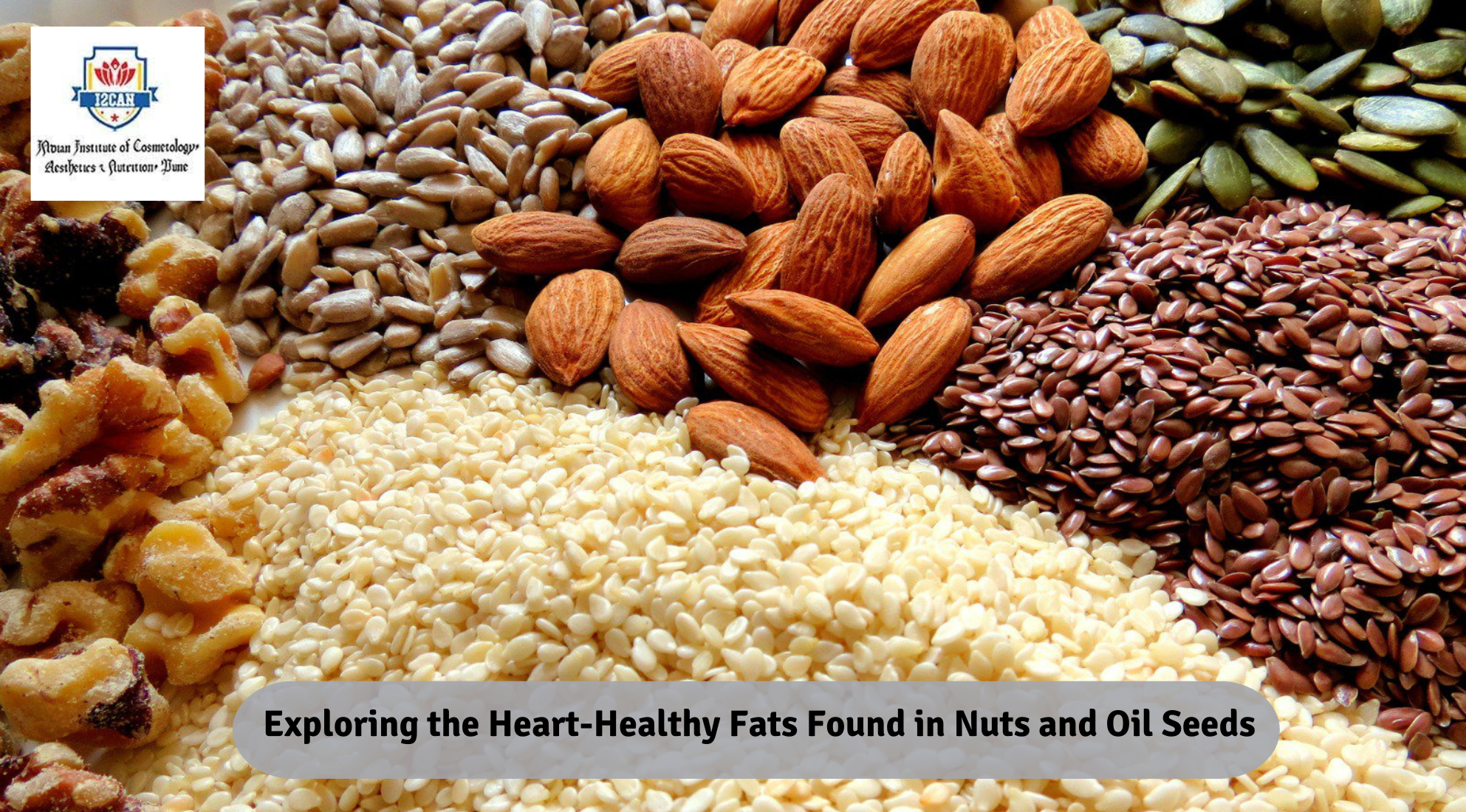In the quest for a heart-healthy diet, one often comes across the recommendation to incorporate nuts and oil seeds. These tiny powerhouses of nutrition are packed with essential nutrients, including healthy fats that are beneficial for cardiovascular health. In this blog, we delve into the world of nuts and oil seeds, exploring their nutritional benefits, the types of healthy fats they contain, and how they contribute to heart health.
Nutritional Composition of Nuts and Oil Seeds:
Nuts and oil seeds are nutrient-dense foods, rich in a variety of vitamins, minerals, protein, and dietary fiber. However, what makes them particularly noteworthy for heart health is their high content of healthy fats, namely monounsaturated and polyunsaturated fats.
Monounsaturated Fats:
One of the primary types of healthy fats found in nuts and oil seeds is monounsaturated fat. This type of fat is known for its ability to reduce LDL cholesterol levels (often referred to as “bad” cholesterol) and lower the risk of heart disease. Examples of nuts rich in monounsaturated fats include almonds, cashews, and peanuts. Additionally, oil seeds like sesame seeds and pumpkin seeds are excellent sources of these heart-healthy fats.
Polyunsaturated Fats:
Polyunsaturated fats are another key component of nuts and oil seeds that contribute to heart health. This category includes omega-3 and omega-6 fatty acids, both of which are essential for the body and must be obtained from the diet. Omega-3 fatty acids, in particular, have been extensively studied for their anti-inflammatory properties and their role in reducing the risk of heart disease. Walnuts, flaxseeds, and chia seeds are notable examples of nuts and oil seeds rich in omega-3 fatty acids. Meanwhile, sunflower seeds and pine nuts are excellent sources of omega-6 fatty acids.
Benefits for Heart Health:
Incorporating nuts and oil seeds into a balanced diet offers a multitude of benefits for heart health. Here are some key ways in which these nutrient-rich foods contribute to cardiovascular well-being:
- Lowering Cholesterol Levels: The monounsaturated and polyunsaturated fats found in nuts and oil seeds can help lower LDL cholesterol levels, thus reducing the risk of plaque buildup in the arteries and lowering the risk of heart disease.
- Supporting Blood Pressure Regulation: Nuts and oil seeds are rich in potassium, magnesium, and other minerals that play a crucial role in regulating blood pressure. Consuming these foods as part of a heart-healthy diet can help maintain healthy blood pressure levels.
- Reducing Inflammation: The omega-3 fatty acids present in certain nuts and oil seeds have anti-inflammatory properties, which can help reduce inflammation in the body. Chronic inflammation is linked to an increased risk of heart disease, making these foods valuable allies in maintaining heart health.
- Providing Antioxidants: Nuts and oil seeds are also rich in antioxidants, such as vitamin E and selenium, which help protect the body against oxidative stress and damage to the arteries. By reducing oxidative stress, these antioxidants contribute to overall cardiovascular health.
Incorporating Nuts and Oil Seeds Into Your Diet:
Adding nuts and oil seeds to your diet doesn’t have to be complicated. Here are some simple ways to enjoy these heart-healthy foods:
- Snack on a handful of nuts: Keep a variety of nuts like almonds, walnuts, and pistachios on hand for a quick and nutritious snack.
- Sprinkle seeds on salads: Add a crunch and a nutritional boost to your salads by sprinkling them with seeds like pumpkin seeds, sunflower seeds, or sesame seeds.
- Blend them into smoothies: Incorporate nuts and seeds into your morning smoothie for a creamy texture and an extra dose of nutrients.
- Use nut butters as spreads: Swap out traditional spreads like butter or cream cheese with healthier alternatives like almond butter or tahini.
- Include them in cooking and baking: Use nuts and oil seeds as ingredients in your favorite recipes, whether it’s adding chopped nuts to oatmeal or using ground flaxseeds in baking.
Incorporating nuts and oil seeds into your diet is a simple yet effective way to promote heart health. Packed with heart-healthy fats, vitamins, minerals, and antioxidants, these nutrient-rich foods offer a wide range of benefits for cardiovascular well-being. By making them a regular part of your meals and snacks, you can enjoy their delicious flavors while nourishing your heart and body. So go ahead, indulge in a handful of nuts or sprinkle some seeds on your next meal – your heart will thank you for it!


